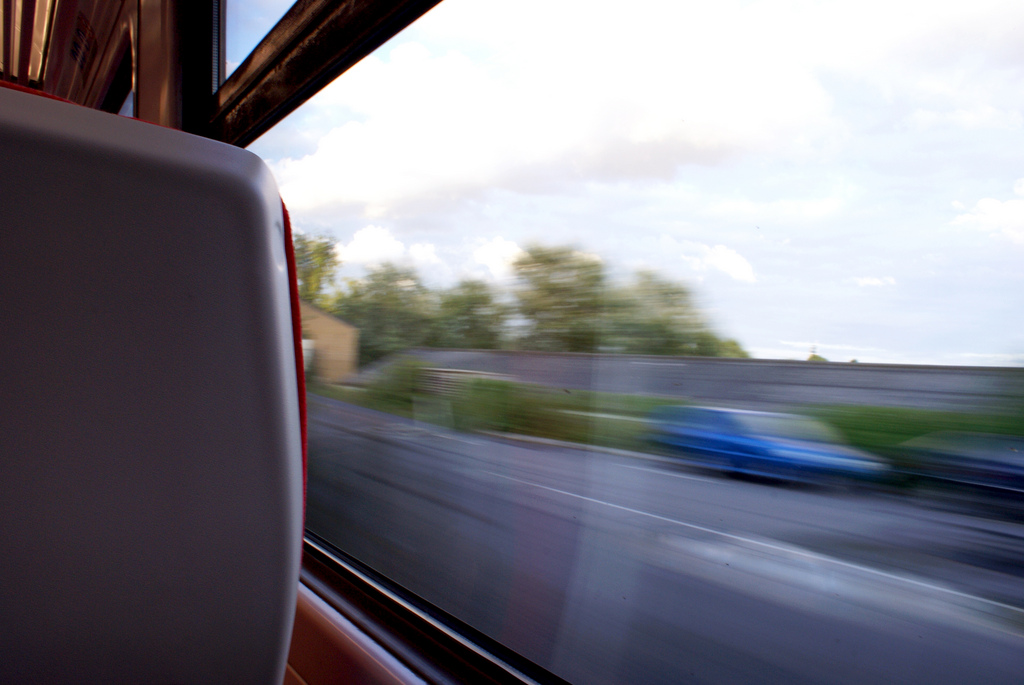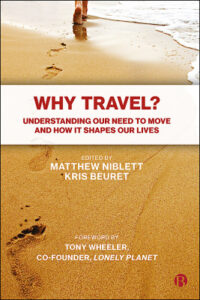We are ‘falling out of love with the car’ but the popularity of rail travel will continue to rise finds new research.

Although car ownership is still widespread, its popularity may be in decline in the UK; while rail travel is now more popular than at any time since WW2. Image: Speedy train is speedy by Sam Caplat licensed under Creative Commons via flickr
20th July 2015
New research on attitudes to rail and road travel indicates that the pattern of increasing rail travel and decreasing private car ownership looks set to continue. The research is part of an ongoing project On the Move: Road and Rail Travel Trends in Britain, which aims to better understand changing land based travel trends, as well as those factors that make us choose to travel in the ways that we do. The project has been undertaken jointly by the Independent Transport Commission and the Office of Rail and Road, supported by a grant from the Rees Jeffreys Road Fund charity. Over the past two decades, forecasts of road and rail travel in the UK have been consistently wrong – over-estimating the level of private car use whilst also under-estimating travel by rail. This new research is uncovering the underlying reasons why travel patterns have changed and indicates that these new trends are likely to continue because people’s attitudes and habits have changed.
The report explored the attitudes and behaviours of certain key groups in the population who are influencing overall travel trends: younger people, older people, ethnic minorities, migrants and business travellers. Whilst the behaviours of each group show noticeable differences and complexities, there are some general trends. Although the car remains an important status symbol to some, particularly amongst those of Indian origin, most groups appear to be ‘falling out of love with the car’ and viewing car use from a more utilitarian perspective than has been the case in the past. Economic concerns (including the costs of owning and driving a car, the availability of concessionary travel, and tax policies for company cars) as well as the convenience and availability of alternative modes of transport are important to all groups in moving them away from private car ownership and onto public transport, as well as walking and cycling. Communications technology is playing its part here too: people are increasingly valuing travel time for the opportunity it provides for work or entertainment. Also, smartphones and improved digital information are enabling people to more easily transfer between modes of transport on different stages of their journey and to use car-sharing and leasing facilities – all of which are encouraging people to shift away from private car ownership. Perhaps unsurprisingly, these trends are most pronounced within cities, but with most people now living in cities – and the urban population set to grow as a proportion of the total – urban trends are very influential for the country as a whole. Perhaps most importantly, the research indicates that these changes in attitudes and habits look set to continue into the future. Although people’s needs change when they cross ‘tipping points’ within their life – for example, when having children or when moving to rural areas – the attitudes and habits built up previously remain influential, making car sharing and public transport use more likely as travel choices than was the case in the past.
The impetus behind the On the Move project was to better understand why forecasts of rail and road travel were so inaccurate, how people’s travel behaviours are changing and, most importantly, why these have changed. Similar concerns underpin another of the Independent Transport Commission’s projects – Why Travel? – which is exploring whether travel is a fundamental human behaviour central to our biological, psychological and social well-being and to the functioning of our societies and economies worldwide. Ranging across centuries and cultures, the project explores the fundamental motivations for human travel using perspectives from across the arts, sciences and humanities in order to better understand why we travel and how we might make better decisions about travel in the future. For more information on the project, including up-to-date news stories and expert views, see www.whytravel.org


